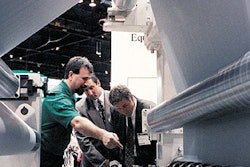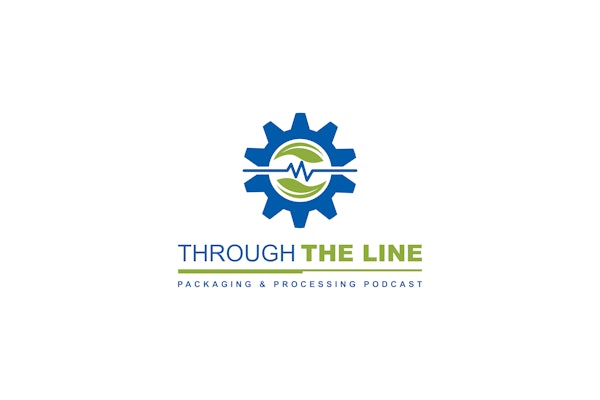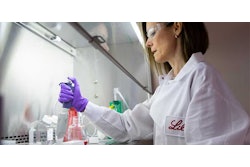Based out of Frazer, PA, Cephalon is a mid-sized biopharmaceutical company whose products include Actiq, Provigil, and Fentora, which is the product that has been tested since the RFID pilot started in 2004. Fentora is a new prescription drug that treats brief, but severe pain flare-ups in cancer patients. Fentora tablets are
blister-packed in a foil-to-foil lamination (shown) - an especially challenging format for RFID reads - that are packed six per paperboard carton and 24 cartons per case. RFID tagging is performed at the case and pallet level.
Brian Brown, senior manager for logistics and analytics, says Cephalon became involved in RFID because it recognized the value of learning the technology and finding good partners. "We positioned ourselves so that if ever RFID were mandated, say by a large retail chain or by the Food and Drug Administration, we wouldn't be scrambling to find good partners. We've had steady progression of growth in our RFID pilot."
Phase 1 tested RFID at the case and pallet level to capture the movements of a placebo product and prototype packaging from a 3PL (third-party logistics) distribution center and was completed in December 2005.
Phase 2 consisted of shipping tagged product to an RFID-enabled wholesaler. That phase was completed in July 2006.
Cephalon is currently implementing Phase 3 of the pilot program, which tests RFID-tagged cases and pallets in a manufacturing environment. In December it began plans for Phase 3 that went live in early summer.
The pilot's overall goals have been to:
1. Compare results of RFID Gen 1 tag readability and placement tests with
similar tests using Gen 2 technology.
2. Evaluate the performance (sensitivity and receptivity) of the Impinj (www.impinj.com) UHF Gen 2 Speedway reader.
Testing was conducted at ADT Security Service's (www.adt.com) RFID active warehouse test facility in Boca Raton, FL, which is an accredited EPC global performance test center. The facility models Cephalon's production environment and packaging with a back-door portal and conveyor configurations, and RFID-tagged pallets and cases. ADT also conducted environment testing at Cephalon's Utah facility where Phase 3 on-site testing begins this summer.
Phase 1 and Phase 2 comparisons found a dramatic jump in readability in going from Gen 1 to Gen 2 RFID: Case-level read rates went from 10% to 93% when pallet loads of cases were transported by forklift truck through fixed portals at speeds of seven miles per hour.
"The tremendous improvement in read rates when comparing Gen One to Gen Two is nothing short of phenomenal," says Randy Bradway, vice president of commercial operations for Cephalon.
The company reports that Gen 2 read rates were consistently 100% when cases were read as the load was spun during stretch wrapping.
The Gen 2 portion of the pilot relies on 73-mm x 34-mm Alien Technology (www.alientechnology.com) UHF Castle inlays based on Impinj Manza semiconductor chip technology.
Cases are tagged with a 3"x10" RFID label that wraps around the case corner. The tag's electronics are positioned on the tag so they are not at the (folded) corner position to prevent damage. After stretch wrapping, each pallet load is affixed with a 3"x3" RFID label.
Phase 3 started with "tag and ship" manual RFID tag application to cased product. "That will give us a feel for the process," says Brown. "The second step will be to automate the process."
blister-packed in a foil-to-foil lamination (shown) - an especially challenging format for RFID reads - that are packed six per paperboard carton and 24 cartons per case. RFID tagging is performed at the case and pallet level.
Brian Brown, senior manager for logistics and analytics, says Cephalon became involved in RFID because it recognized the value of learning the technology and finding good partners. "We positioned ourselves so that if ever RFID were mandated, say by a large retail chain or by the Food and Drug Administration, we wouldn't be scrambling to find good partners. We've had steady progression of growth in our RFID pilot."
Phase 1 tested RFID at the case and pallet level to capture the movements of a placebo product and prototype packaging from a 3PL (third-party logistics) distribution center and was completed in December 2005.
Phase 2 consisted of shipping tagged product to an RFID-enabled wholesaler. That phase was completed in July 2006.
Cephalon is currently implementing Phase 3 of the pilot program, which tests RFID-tagged cases and pallets in a manufacturing environment. In December it began plans for Phase 3 that went live in early summer.
The pilot's overall goals have been to:
1. Compare results of RFID Gen 1 tag readability and placement tests with
similar tests using Gen 2 technology.
2. Evaluate the performance (sensitivity and receptivity) of the Impinj (www.impinj.com) UHF Gen 2 Speedway reader.
Testing was conducted at ADT Security Service's (www.adt.com) RFID active warehouse test facility in Boca Raton, FL, which is an accredited EPC global performance test center. The facility models Cephalon's production environment and packaging with a back-door portal and conveyor configurations, and RFID-tagged pallets and cases. ADT also conducted environment testing at Cephalon's Utah facility where Phase 3 on-site testing begins this summer.
Phase 1 and Phase 2 comparisons found a dramatic jump in readability in going from Gen 1 to Gen 2 RFID: Case-level read rates went from 10% to 93% when pallet loads of cases were transported by forklift truck through fixed portals at speeds of seven miles per hour.
"The tremendous improvement in read rates when comparing Gen One to Gen Two is nothing short of phenomenal," says Randy Bradway, vice president of commercial operations for Cephalon.
The company reports that Gen 2 read rates were consistently 100% when cases were read as the load was spun during stretch wrapping.
The Gen 2 portion of the pilot relies on 73-mm x 34-mm Alien Technology (www.alientechnology.com) UHF Castle inlays based on Impinj Manza semiconductor chip technology.
Cases are tagged with a 3"x10" RFID label that wraps around the case corner. The tag's electronics are positioned on the tag so they are not at the (folded) corner position to prevent damage. After stretch wrapping, each pallet load is affixed with a 3"x3" RFID label.
Phase 3 started with "tag and ship" manual RFID tag application to cased product. "That will give us a feel for the process," says Brown. "The second step will be to automate the process."



















